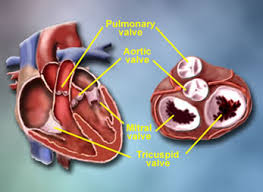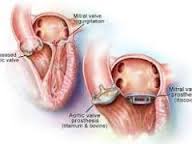Surgery is an effective and reasonable treatment to treat the heart valve problem. Although heart valve repair is the most preferred method for treating a diseased heart valve, some patients are not candidates for the heart valve repair surgery since their valves are too badly damaged. Each patient’s condition is unique and therefore each doctor has a unique approach to treatment. You should therefore discuss with your cardiac surgeon to determine if the heart valve repair surgery is the best treatment for your condition.
Your doctor will choose the procedure to repair the heart valve depending on which valve is damaged. In most cases, the tricuspid and mi tral valves need to be repaired.
tral valves need to be repaired.
Heart Valve Repair:
It is an open heart operation where the surgeon opens your chest and heart to repair the defective heart valve.
What to Expect Before the Procedure?
How long the procedure will take depends you how much heart disease is present. Your surgeon will discuss this with you before the procedure. He/ she will suggest you a number of actions including:
- Talk with different members of the surgical team, such as surgeon, anesthesiologist, cardiologist, nurses and registered therapist.
- Discuss with your family members regarding the details of the operation.
- Visit the intensive care unit (ICU) where you may be sent for the post-operative recovery.
What to Expect During this Procedure?
During the heart valve repair, the surgeon opens your chest to get to your heart and the problem valve. You will be asleep during this procedure and hence feel no pain. Your heart will be temporarily stopped and you will be put on a heart/lung machine which takes over your breathing and the blood circulation. Alternatively, there are some procedures which are performed on a beating heart as well. Your surgeon will decide which type of procedure is best for your medical condition.
There are minimally invasive procedures which let the surgeon get to the damaged valve by creating a small incision in the breastbone or under the right pectoral muscle in the chest. Due to the recent advances in technologies and the procedural techniques, many cardiac surgeons use minimally invasive procedures to repair the heart valves. These procedures will potentially reduce pain, scarring and the recovery time. The heart valve repair is performed with one of the three types of incisions. A minimally invasive surgery uses a mini incision in the sternum or under the pectoral muscle in your chest to access the heart valve.
Your surgeon will perform one or several of the procedure as he/she repairs the heart valve:
- Resize the valve by removing the extra tissue
- Remove the calcium deposits that have built up around the valve leaflets
- Repair the cords which control the movement of the valve leaflets
- Reattach the valve to its cord
- Support the base of the valve by adding tissue or by sewing an annulus band or ring around the outside of the valve
 What to Expect After the Procedure?
What to Expect After the Procedure?
When the heart valve has been repaired and the surgery is completed, your heart will be beating and all the incisions will be closed.
After the procedure, you’ll spend some time in the ICU, where you will be closely monitored to make sure there are no complications. After that you will be moved to another room where your family and friends will be able to visit you.
Bottom Line
Besides heart valve repair, the other treatment options include medication and the heart valve replacement. Ensure to get all answers to your queries by asking your cardiac surgeon before getting the heart valve repair. India Cardiac Surgery Site offers the affordable and effective treatment for heart valve repair from the most experienced and highly skilled cardiac surgeons at the top cardiac hospitals across the country.
Read More :
Why Heart Valve Repair patients are more in common found in Australia, Canada and New Zealand?
Is Sex safe after heart valve repair?
Learn Why Medical Tourists Visit for Heart Valve Repair In India?
